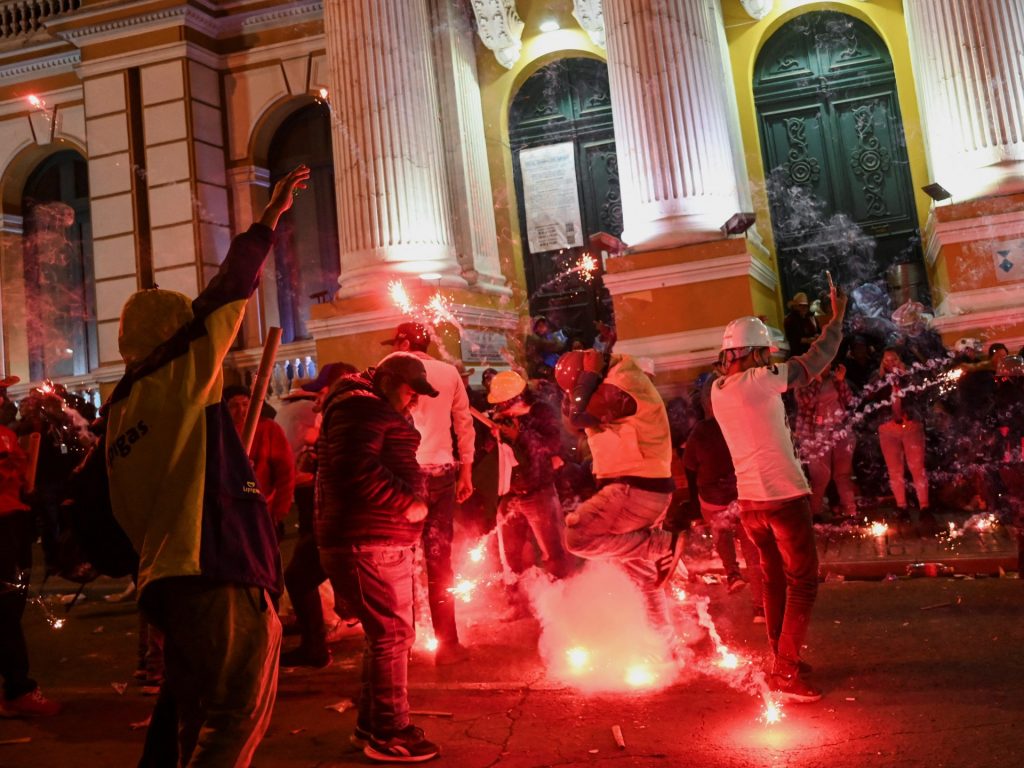Anti-government protests in Bolivia have led to clashes between supporters of President Luis Arce and protesters demanding cabinet changes. Former President Evo Morales has given the government an ultimatum to make changes or face the wrath of thousands of protesters. The tension has escalated, with both sides engaging in violent clashes involving homemade explosives, firecrackers, and tear gas. So far, the clashes have left 34 people injured.
The power struggle between Arce and Morales, both vying to lead Bolivia’s dominant party, has paralyzed the government, depleting foreign exchange reserves and fueling street protests. Arce and Morales were once close allies but are now political rivals. Morales, who was ousted in 2019, is seeking to make a political comeback but is currently barred by the constitution from running for another term. Arce, on the other hand, has accused Morales of attempting a military coup earlier this year.
With comparisons drawn to previous governments toppled by mass protests, there is speculation about potential resignations. However, political analysts believe it is premature to expect a resignation, as the police and military have not shown signs of abandoning President Arce. The situation remains uncertain following Morales’s ultimatum, with questions surrounding Morales’s ability to mobilize his supporters and make a significant impact on the government.
Bolivia’s poverty rate remains a significant challenge, with a large percentage of the population living in poverty and extreme poverty. The economic crisis, exacerbated by declining revenue from natural gas exports and a lack of investment, has led to shortages and devaluation of the Bolivian peso. Morales has capitalized on the economic situation to rally support among his base of coca farmers, Indigenous people, and workers, with protests and marches challenging the Arce government.
Morales’s supporters, including Indigenous Bolivians, have begun a march to challenge the Arce government. The march, which has been portrayed as a reflection of Bolivia’s Indigenous culture, has attracted widespread support from Morales’s base. Both sides have blamed each other for the recent violence, with Morales accusing Arce’s government of inciting violence through paramilitary groups, while Arce’s supporters deny these allegations. The situation remains tense, with fears of further unrest ahead of next year’s presidential election.
In response to the crisis, the government has rejected Morales’s ultimatum, citing threats to democratic order. The ongoing clashes between protesters and supporters highlight the deep divisions within the country’s political landscape. As tensions continue to rise, the future of Bolivia remains uncertain, with concerns about the potential for further violence and unrest in the lead-up to the presidential election.















